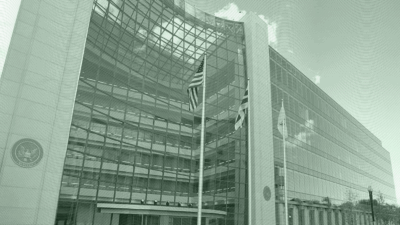SEC Smartphone Location Data Could Be Linked to Share Prices
Phone location data links Securities and Exchange Commission visits to corporate offices with drops in company share prices.

Sign up for market insights, wealth management practice essentials and industry updates.
Nobody likes the government knocking on their firm’s door, peeking inside filing cabinets, and scanning computer servers. Sometimes the company’s stock price doesn’t care for it either.
By tracking smartphone geolocation data, researchers at multiple universities were able to link unannounced visits at corporate offices from the Securities and Exchange Commission to drops in share prices — even when no enforcement was handed down. The location data was linked to de-identified phones between 2019 and the first quarter of 2020. The researchers looked at devices that pinged regularly in SEC offices and then tracked the ones that would also ping in public company headquarters. Sneaky. Across the board, significant reductions in stock prices were seen after a visit, with three-month abnormal dips of between 1.4% and 1.94%, the report found.
There are a few possible reasons as to why SEC visits can lead to share price drops, such as firms using questionable accounting practices they correct only after an SEC visit, according to Marcus Painter, a professor at Saint Louis University and one of the report’s authors.
“There could also be news leaks of the visit, as sophisticated investors are skilled at uncovering information,” Painter told The Daily Upside. “Finally, employees of the firm may be distracted or burdened by the regulator visit, leading to operating underperformance that translates to market underperformance.”
Every Step You Take
Similar to getting randomly selected by airport security for additional screening, many SEC visits aren’t related to something bigger. The report found that 84% of visits occur at firms that were never under formal investigation. However, the visits can still put company executives and investors on edge. When regulators come to town, insiders tend to stop trading to avoid raising any red flags.
- Insiders are 16% less likely to sell in the two weeks surrounding an SEC visit relative to periods with no visits, the report said. That percentage is even higher when the SEC enforces an action.
- But because the visits aren’t public, insiders may want to offload shares and avoid losses. When insiders do sell around visits, they avoid three-month abnormal losses of 4.9%, on average, the report said.











